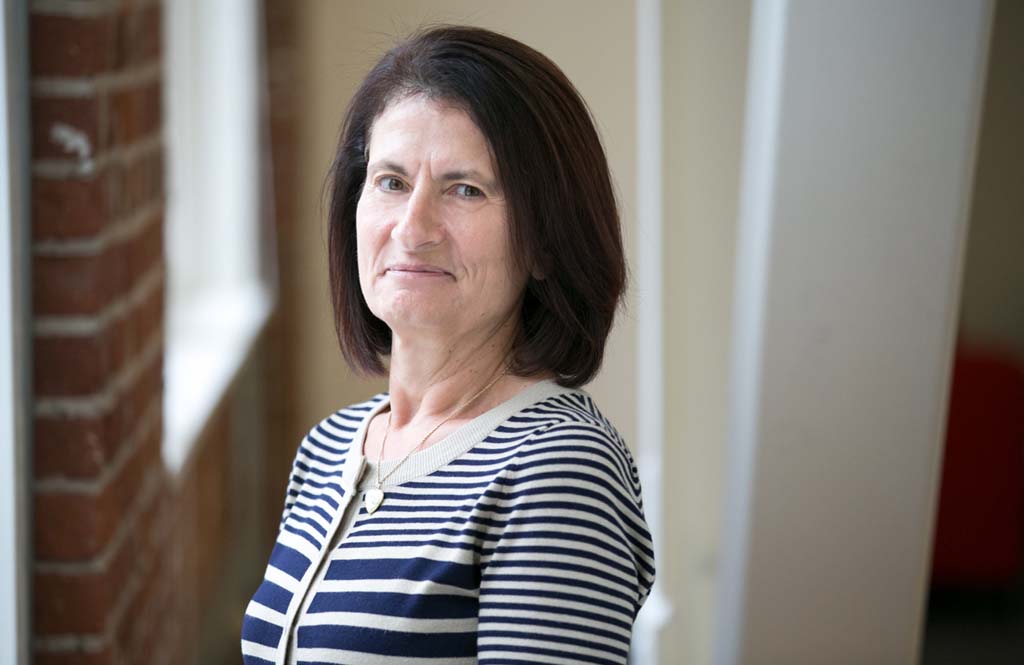The Wikimedia Foundation is pleased to announce Victoria Coleman as our new Chief Technology Officer. As the Foundation’s senior technology executive, Victoria will be responsible for setting the vision and strategy for technology and operations behind the Wikimedia projects, in cooperation with the global communities of volunteer contributors, users, and researchers. Her first day is 7 November 2016.
The Wikimedia Foundation is the non-profit organization behind Wikipedia, one of the world’s largest and most popular web properties. The organization also operates 11 other Wikimedia projects, including MediaWiki, the open-source wiki software that powers Wikimedia projects and many other online collaborations. Together, the Wikimedia sites are visited by hundreds of millions of people each month from every corner of the globe.
The Chief Technology Officer oversees the organization’s Technology department and technical roadmap, and is responsible for the evolution, development, and delivery of our core platforms and architecture. In this role, Victoria will work closely with the Wikimedia Foundation’s technology teams to ensure an accessible and performant technology infrastructure and anticipate scale and capability challenges for the Wikimedia projects.
“Victoria brings the right combination of deep technical knowledge, operational expertise, and the steady hand that is needed in this unique role, ” said Katherine Maher, Executive Director of the Wikimedia Foundation. “Her experience leading development for a wide array of technology platforms at scale, as well as her love for education and passion for our mission, make her an excellent addition to our leadership team.”
Victoria has more than 20 years of experience in consumer and enterprise technology. She is a strong leader with expertise in strategy and development in software engineering, mobile platforms, connected devices, cyber security, and web services, and has been a longtime advocate for innovation in education and the public sector.
“Over the past 15 years, Wikipedia and the other Wikimedia projects have radically changed how people access knowledge,” Victoria said. “But the vast majority of people today still don’t use or have access to these resources. As we look ahead, we’ll consider how we can grow and evolve our technologies to support the Wikimedia vision: a world where every person has access to all knowledge. I look forward to collaborating with the existing team at the Foundation and the Wikimedia communities in this important work.”
Most recently, Victoria served as Senior Vice President and Chief Technology Officer for the Connected Home Division of Technicolor, where she was responsible for innovation strategy, product management, technology roadmaps, and technical due diligence for acquisitions and partnerships. Previously, as Senior Vice President of Research and Development at Harman, she led the core technology platforms of the Infotainment Division including systems and software, media, tuner, navigation, connectivity, and advanced driver assist systems.
As Vice President Engineering at Yahoo! Inc., Victoria led Yahoo! membership, web presentation technologies such as the Yahoo! User Interface Library, mobile web services, notification services, backend SDKs including accounts and messaging, mobile application testing, and the Yahoo! Developer Network. Before joining Yahoo!, Victoria served as Vice President, Emerging Technologies at Nokia, Vice President, Software Engineering of Hewlett-Packard’s webOS global business unit, and Vice President of Samsung’s Advanced Institute of Technology. She has also held director roles at Intel and SRI International, in security technology and system design, respectively.
Before joining SRI International, Victoria was a Reader in Computer Science for two years at Queen Mary and Westfield College and a Lecturer in Computer Science at Royal Holloway and Bedford New College for six years, both at the University of London. She designed the software engineering and theoretical strands of the Royal Holloway undergraduate computer science program. She also created the Masters program on Dependable Computer System, and taught undergraduate and graduate classes in information security, operating systems, software engineering, and dependable distributed systems.
Victoria has also been selected to participate on numerous advisory councils in higher education and the public sector. She serves on the advisory Board of the Santa Clara University Department of Computer Engineering. She is also a Senior Advisor to the Director of the University of California Berkeley’s Center for Information Technology Research in the Interest of Society. She serves as a volunteer advisor on the United States Department of Defense’s Defense Science Board and is a member of Lockheed Martin’s Technology Advisory Group. She is also an advisor to the Automotive Security Review Board, a nonprofit consortium aiming to make connected cars more cyber secure.
Victoria has deep familiarity with open source software development, having witnessed the ascendancy of the Unix movement first as a student and subsequently as an instructor. She passionately believes in the power of open source and has been actively involved in the development of LiMo (renamed Tizen), the first truly open, hardware independent, Linux-based mobile operating system. Having used Webkit as the basis of the application runtime of webOS, she is also very familiar with leveraging open source for building products.
Victoria received her B.Sc and M.Sc in Electronic Computer Systems and Computer Aided Logic Design respectively from the University of Salford, UK and her Ph.D. in Computer Science from the University of Manchester, UK. She holds four patents and is the author of more than 60 articles and books. Born in Greece, she has worked with teams around the world, including in Belgium, Brazil, China, France, Finland, Germany, India, Israel, Korea, Russia, the United Kingdom, and the United States.





